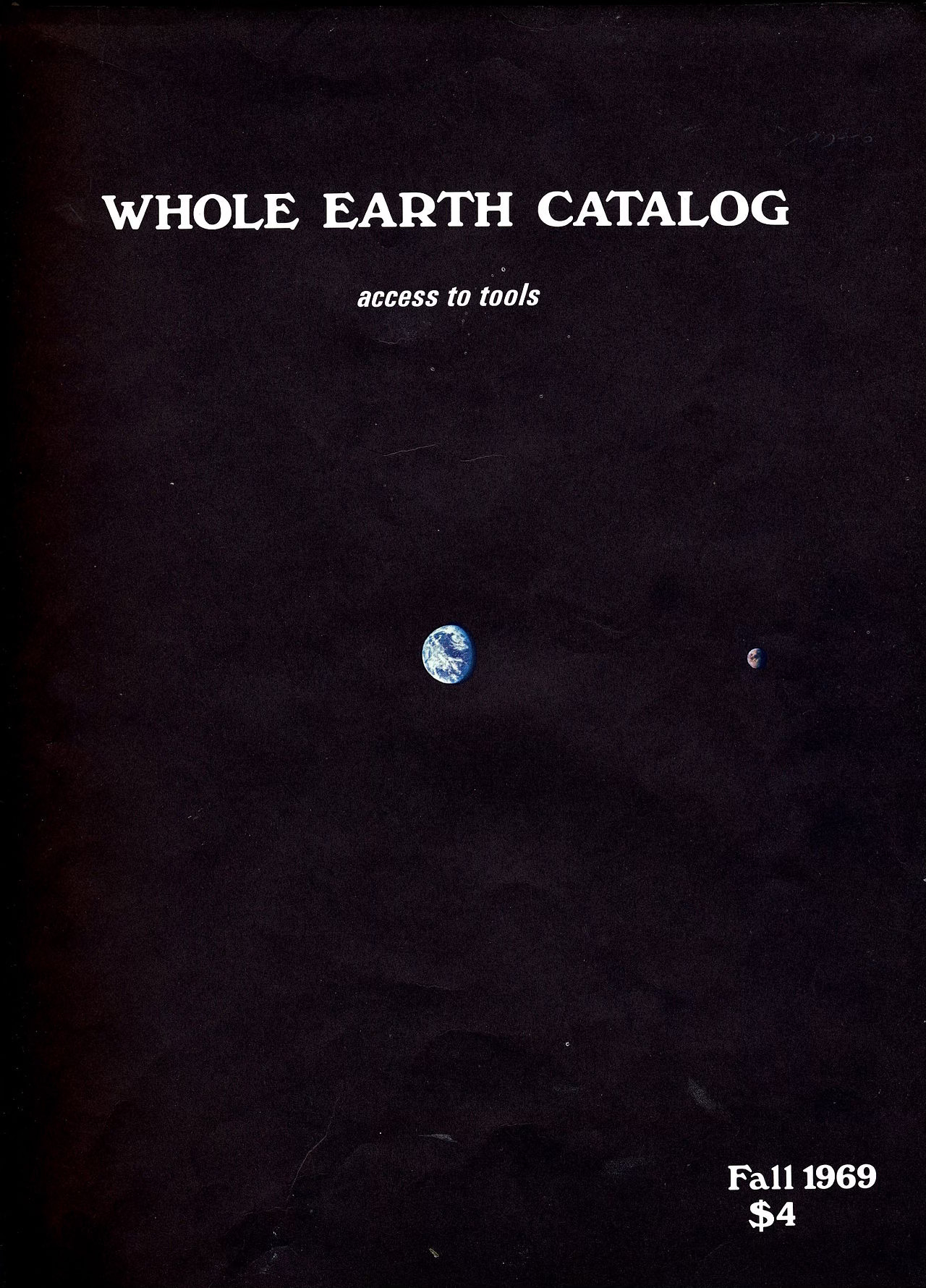AI Is Not a Tool
And it isn't a person either. But how we frame discussions of technology matters.
Ho Chi Minh City. A panel on AI. Incredible insights from Nguyễn Tiến Huy from Pencil.
There was a good discussion about whether AI co-opts ‘art’ and the ethics of sucking up IP into the ‘machine’. But the most interesting question was from a student at RMIT:
“My professor says we need to think of AI as a person, not a tool. Is this true?”
The panel was unanimous that AI is ‘just a tool’. Their point was that AI hasn’t yet achieved sentience. It isn’t a being (yet), it’s just this super-productive assistant, a modern-day Photoshop, an advanced version of spellcheck, a tireless researcher.
They weren't wrong.
But for 20 years I’ve been counter-evangelizing the Silicon Valley orthodoxy that technology is ever “just a tool”. And with AI this feels more pressing than ever.
The Whole Earth Catalog
“Access to tools”. It was optimistic, holistic, empowering. The Whole Earth Catalog arose from the fusion of 1960’s counter-culture and technology.
It proposed a vision of a maker-type culture, a decentralized and networked world where access to tools empowered people to create a new version of society.
In counterpoint to the military/industrial complex of the 50s, Whole Earth blended libertarianism, mindfulness and transhumanism with the simple concept that the tools of production could belong to everyone.
Perhaps no other publication was as influential in driving the ethos of the digital era. Steve Jobs described it as “like Google in paperback form, 35 years before Google came along.”
BUT. It also created a Silicon Valley shorthand: “we’re just creating tools. Tools empower people. Therefore the ethos of how those tools are used belong to the people who pick them up.”
And ever since, the nearly universal narrative about technology (from the people who create it) is that it’s neutral, values-free and passive.
“Facebook is a tool. Like a phone. People use it for good and bad.” - Zuckerberg
“Technology is neutral. It’s what you do with it that matters.” - Google CEO
Uber is “ a technology platform that connects riders and drivers.” (Don’t worry about the costs of that labour).
So, What IS AI?
But first. How did we get here?
Money. It was the single over-riding factor in the shift from the initial ethos of The Whole Earth Catalog wherein tools were once empowering, ethical and intentional to a view where tools are passive, values-free and not worth examining too deeply.
In daily practice, AI truly is just a tool. It isn’t yet (fully) sentient.
But when we frame our consideration of AI as a ‘tool’ we’re doing the work of Silicon Valley.
The truth is that AI is perhaps the most values-laden technology that has ever been launched:
It was built by consuming copyright material which is, at minimum, an ethically fuzzy grey zone
LLMs are trained based on weightings that are themselves value constructions (a sort of Jungian set of archetypes)
Every AI tool we interact with has layers-upon-layers of guardrails and very human decisions about tone of voice, restricted topics, memory and preferences. The recent ‘sycophant’ style of ChatGPT reminds us that SOMEONE turned the wrong dials on how models respond to very real people
Because AI isn’t currently a public good, the things being built on top of it are primarily driven by profit motive. AI is being created inside mostly large for-profit organizations (OpenAI’s structural machinations notwithstanding).
AI is both a media producer AND distribution network. AI can be both the filmmaker and Netflix, both the meme creator and the meme distribution channel.
And so the panel wasn’t wrong. Their point was that we shouldn’t think of AI as ‘human’ or sentient. In the choice between AI as a tool or AI as a “being”, AI is a tool.
But AI is profoundly reshaping work, culture, and the physical and digital landscape.
We need to hold those creating it and ourselves to a higher standard. We need to acknowledge that its development and the choices we make in using it should be done, at the very least, with intention.
I can’t imagine that fire was ever considered to be ‘just a tool’. It was profound, mystical, and world-changing.
We’ve invented fire.
Now what?
"A realm of intimate, personal power is developing—power of the individual to conduct his own education, find his own inspiration, shape his own environment, and share his adventure with whoever is interested."
- Whole Earth Catalog Introduction
It’s been a long time since I posted! I’ve been deep into exploring the edges of AI for narrative, the ‘shape’ of agentic AI, and how to create intentional tools that empower rather than replace people.
I love getting emails and starting a conversation, and it’s more interesting when it’s with a real person than a chat box. Feel free to comment on the Substack app, email me at doug@bureauofbrightideas.com or message me on Twitter.
Let's chat.



